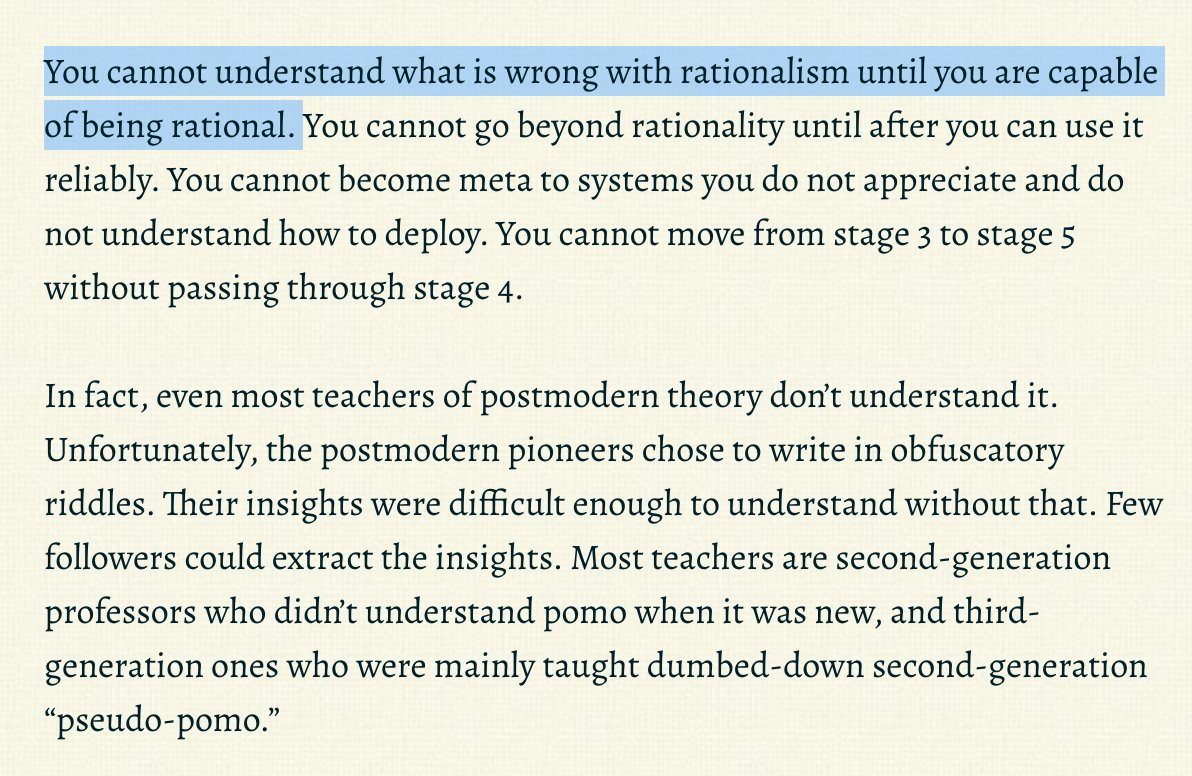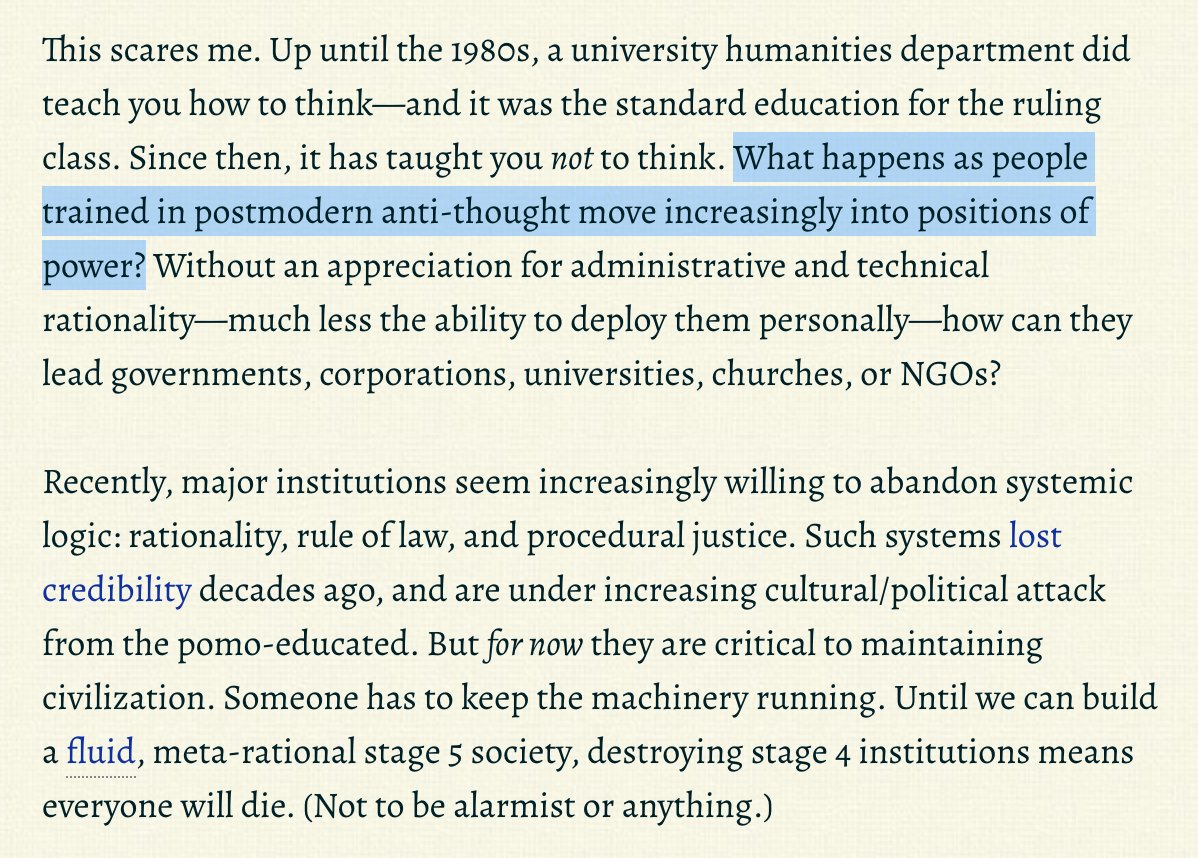
🎙 @wolftivy and @miltonwrites of @palladiummag on society and politics after postmodernity—the question I care most about in the long run.
Thanks for the shout-out, and for Ash's clear & accurate summary of my vaguely-stated tweetstorm from last week!
palladiummag.com/2020/10/22/pal…
Thanks for the shout-out, and for Ash's clear & accurate summary of my vaguely-stated tweetstorm from last week!
palladiummag.com/2020/10/22/pal…
Fascinating in the podcast were thoughts on how to move forward, and what comes after—whereas discussions of postmodernity usually rehash "how did everything fall apart," which we now thoroughly understand. 

@palladiummag asks a key prior question: "if we accept the postmodern critique, why did modernity work as well as it did for as long as it did?"
Standard postmodern talk just tries to discredit modernity, beating a dead horse. meaningness.com/systems-crisis…
Standard postmodern talk just tries to discredit modernity, beating a dead horse. meaningness.com/systems-crisis…
"The emperor has no clothes!" pomoists yell. Yes, yes, everyone has known that for decades.
Yet Emperor Modernity built antibiotics and human rights and the internet in his altogether. His propaganda was false, but his accomplishments largely real. meaningness.com/systematic-mode
Yet Emperor Modernity built antibiotics and human rights and the internet in his altogether. His propaganda was false, but his accomplishments largely real. meaningness.com/systematic-mode
I suggested "structure without absolutes" as the way forward. Wolf was skeptical—rightly so, in the absence of a worked-out story of how that can be.
But modernity itself is a partial existence proof. It did provide structure, and wasn't *in fact* founded on absolutes.
But modernity itself is a partial existence proof. It did provide structure, and wasn't *in fact* founded on absolutes.
@palladiummag suggests that modernity was enabled not by its metaphysical myths, but by a largely-tacit shared culture and social norms—notably the "gentlemanly norms" of the British Royal Society.
(This has a markedly ethnomethodological flavor...)
(This has a markedly ethnomethodological flavor...)
The existence proof is only partial, because *belief* in the metaphysical myths played an important role in modernity's functioning—even though they were false.
Can we develop new functional structures for society after metaphysical myths have been categorically discredited?
This will require developing new maturity on all our parts. I am hopeful that is possible.
This will require developing new maturity on all our parts. I am hopeful that is possible.
• • •
Missing some Tweet in this thread? You can try to
force a refresh




